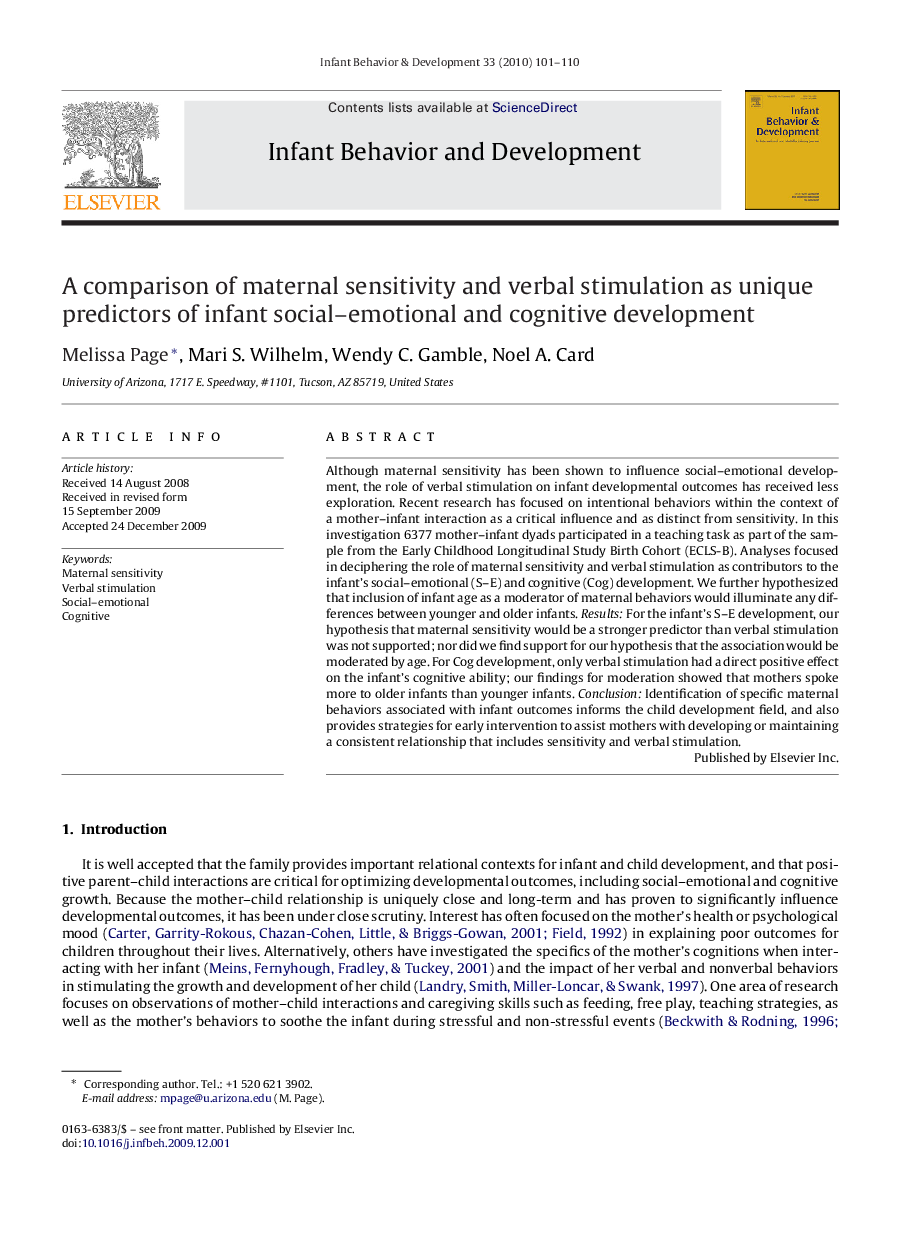ترجمه فارسی عنوان مقاله
مقایسه حساسیت مادر و تحریک کلامی به عنوان پیش بینی کننده منحصر به فرد از رشد عاطفی اجتماعی و شناختی نوزاد
عنوان انگلیسی
A comparison of maternal sensitivity and verbal stimulation as unique predictors of infant social–emotional and cognitive development
| کد مقاله | سال انتشار | تعداد صفحات مقاله انگلیسی |
|---|---|---|
| 76167 | 2010 | 10 صفحه PDF |
منبع

Publisher : Elsevier - Science Direct (الزویر - ساینس دایرکت)
Journal : Infant Behavior and Development, Volume 33, Issue 1, February 2010, Pages 101–110
ترجمه کلمات کلیدی
حساسیت مادر؛ تحریک کلامی؛ اجتماعی-عاطفی؛ شناختی
کلمات کلیدی انگلیسی
Maternal sensitivity; Verbal stimulation; Social–emotional; Cognitive

